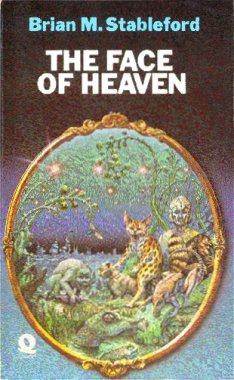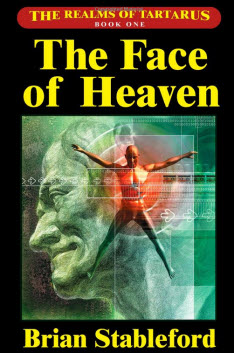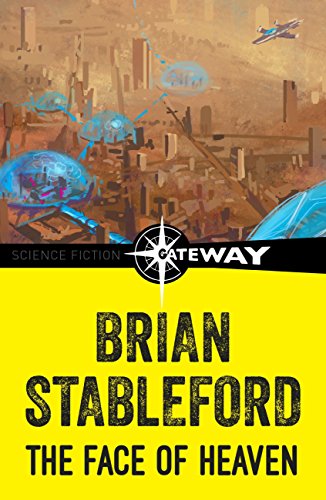| Home |
| Novels |
| Collections |
| Translations |
| Non-Fiction |
| Short Stories |
| Anthologies |

Now it is Tartarus, shut off from the face of heaven by a huge platform which completely envelopes the world. Living in a technological utopia, the inhabitants of the platform have long forgotten that other men still live in the grim underworld that they forsook.
But one man descends to the Tartarean depths. He discovers that under the accelerated evolutionary conditions of this hothouse underworld a whole new ecology of grossly mutated life-foms has emerged. Now the True Men share their environment with rat-men, cat-men and gigantic waterworms...
Cover art by Patrick Woodruff
Published by Quartet in February 1976.
ISBN: 0-704-31194-1

After laboring for thousands of years, the people of Earth, fleeing ecological disaster, have built a new, clean, stable world on a worldwide platform erected over the entire land surface of the Earth.
Everything is going well--except for Carl Magner, the man who's been having bad dreams. He shouldn't be having dreams at all, because dreams have been banished from the society of the Euchronian Millennium, but somehow he is, and his dreams are showing him the "Underworld."
The real surface of the Earth, the Underworld that the Euchronian Millennium has left behind, still maintains life, human and otherwise, life that's adapted to a world without sky or sun, still evolving in response to extreme environmental challenges. Dreams are only dreams, but they're a provocation nevertheless, not merely for Carl Magner, but for the whole of Euchronian society. Can Heaven be truly Heaven, if Hell still festers in its entrails?
The first book in a stunning SF trilogy, The Realms of Tartarus!
Cover art by Peter Hires
Published by Wildside Press in November 2012.
ISBN: 978-1-4344-4571-1

After laboring for thousands of years, the people of Earth, fleeing ecological disaster, have built a new, clean, stable world on a worldwide platform erected over the entire land surface of the Earth.
Everything is going well–except for Carl Magner, the man who’s been having bad dreams. He shouldn’t be having dreams at all, because dreams have been banished from the society of the Euchronian Millennium, but somehow he is, and his dreams are showing him the “Underworld.”
The real surface of the Earth, the Underworld that the Euchronian Millennium has left behind, still maintains life, human and otherwise, life that’s adapted to a world without sky or sun, still evolving in response to extreme environmental challenges. Dreams are only dreams, but they’re a provocation nevertheless, not merely for Carl Magner, but for the whole of Euchronian society. Can Heaven be truly Heaven, if Hell still festers in its entrails?
Published by Orion (ebook) in November 2018.
ISBN: 978-1-4732-1957-1
In omnibus The Realms
of Tartarus.
Translated into French as part of Les
Royaumes de Tartare.
Translated into German as Die
Erde über uns;
Translated into Japanese.

